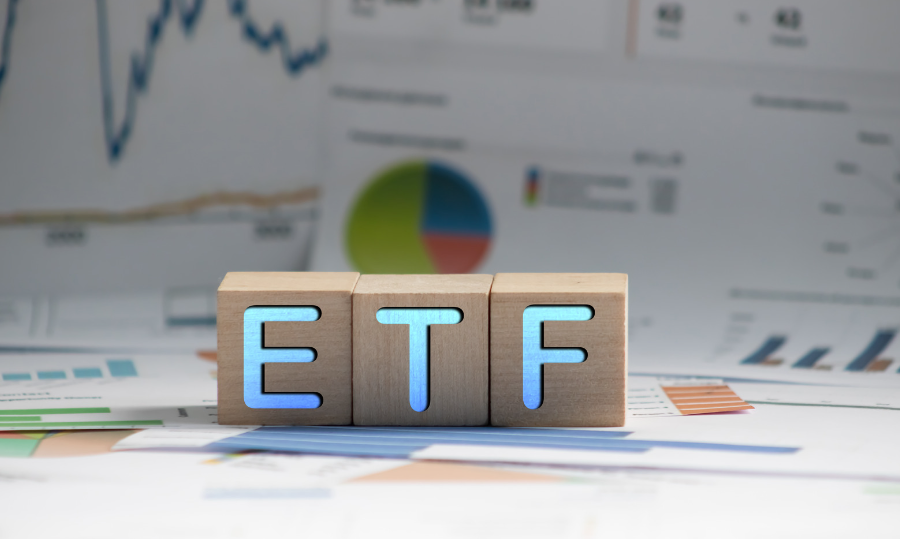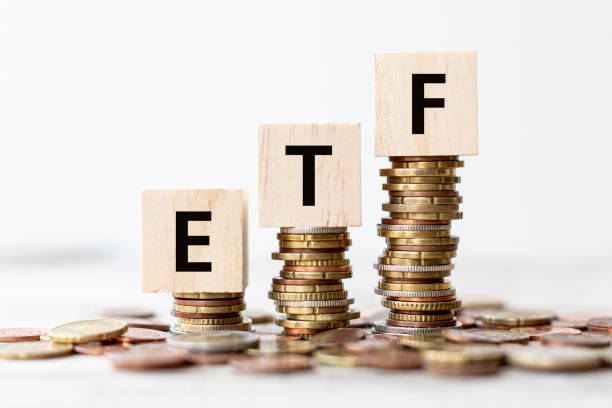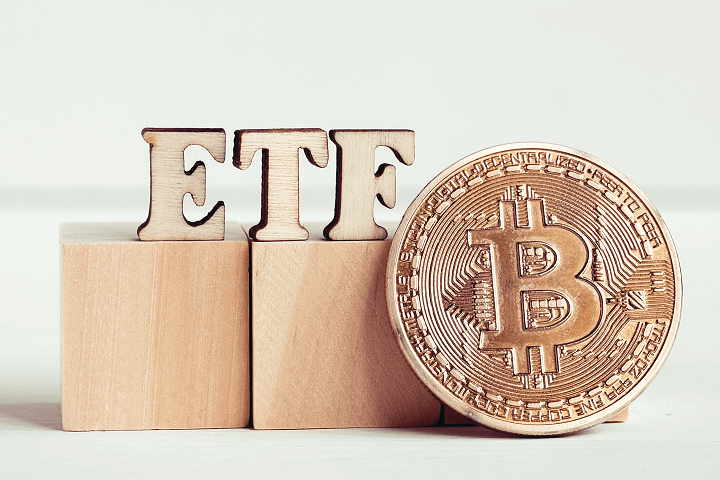The cryptocurrency market continues to captivate investors. Bitcoin, Ethereum, and other digital assets continue to gain mainstream traction. As crypto grows, so do the investment options. This dilemma leaves many cryptocurrency enthusiasts to wonder: is it better to buy a crypto exchange-traded fund (ETF) or hold the real coins directly?
While both approaches have unique benefits and risks, the right choice depends on your financial goals, risk tolerance, and investment strategy. In this article, Crypto Guide GH explores the pros and cons of crypto ETFs versus holding actual cryptocurrencies to help you make an informed decision.

What Are Crypto ETFs in the Cryptocurrency World?
Crypto ETFs are financial instruments traded on stock exchanges that track the price of one or more cryptocurrencies, such as Bitcoin or Ethereum, or a basket of digital assets. Crypto ETFs allow investors to gain exposure to crypto price movements without directly owning the underlying coins. Popular examples include Bitcoin spot ETFs, like the iShares Bitcoin Trust (IBIT), Global X Blockchain & Bitcoin Strategy ETF (BITS) and Bitwise Crypto Industry Innovators ETF (BITQ).
Benefits of Crypto ETFs in the Saturated Cryptocurrency Market
If you intend to hold ETFs, you should know some of the benefits of cryptocurrency exchange-traded funds.
Ease of Access
Crypto ETFs are traded on traditional stock exchanges, making them accessible through standard brokerage accounts. Investors can buy and sell shares without navigating crypto exchanges or managing digital wallets.
Regulatory Oversight
ETFs are regulated by financial authorities like the Securities and Exchange Commission (SEC). Therefore, it offers a layer of security and transparency that may appeal to cautious investors wary of unregulated crypto markets.
Diversification
Some ETFs track a basket of cryptocurrencies. This reduces the risk tied to a single coin’s volatility. This diversification can stabilise returns when compared to holding a single coin.
No Wallet Management
Owning crypto directly requires secure storage in digital wallets. This is extremely dangerous, as wallets can be vulnerable to hacks or user errors. ETFs eliminate the need for private keys or passcodes and wallet management. This simplifies the process.

Drawbacks of Crypto ETFs under the Current Cryptocurrency Climate
If you want to invest in crypto ETFs, you should know some of the potential pitfalls of associating with this sector of the cryptocurrency economy.
Management Fees
ETFs charge annual expense ratios, which can erode returns over time. Holding coins directly avoids these recurring costs.
Limited Control
ETF investors don’t own the underlying crypto, meaning they can’t use it for transactions, staking, or decentralised finance (DeFi) opportunities.
Tracking Errors
ETFs may not perfectly mirror the coin’s price due to fees, market inefficiencies, or futures-based structures, leading to potential underperformance.
Advantages of Holding Real Coins
Full Ownership: Owning crypto directly grants complete control, allowing you to use coins for payments, staking, or participating in blockchain networks.
No Fees: Holding coins in a personal wallet avoids management fees and maximises long-term returns, especially for HODLers.
Decentralised Potential: Direct ownership aligns with crypto’s ethos of decentralisation, offering access to DeFi platforms and other blockchain-based innovations.
Risks of Holding Real Cryptocurrency Coins
Security Risks: Storing crypto requires robust security measures. Hacks, phishing, or lost private keys can result in total loss of funds.
Complexity: Buying and managing crypto involves navigating exchanges, wallets, and blockchain networks, which can be daunting for beginners.
Regulatory Uncertainty: Direct crypto ownership may face stricter regulations or tax complexities depending on your jurisdiction.
Cryptocurrency Wars: Which Is Better?
The choice between a crypto ETF and holding real coins hinges on your priorities. If you value simplicity, regulatory protection, and integration with traditional portfolios, a crypto ETF is ideal, especially for beginners or risk-averse investors. However, ETFs come with fees and limited functionality.
Conversely, holding real coins suits those comfortable with technology, seeking full control, or wanting to engage with blockchain ecosystems. It offers greater flexibility but demands vigilance to manage security and regulatory risks.

Conclusion: Should you invest in Crypto ETFs or Buy Real Coins in this bullish Cryptocurrency market?
Both crypto ETFs and direct coin ownership have compelling merits. ETFs provide a low-maintenance, regulated entry point, while holding coins unlocks crypto’s full potential at the cost of added responsibility.
Assess your risk tolerance, investment horizon, and desire for blockchain engagement to decide which path aligns with your goals. For many, a hybrid approach, which combines ETFs for stability and coins for active participation, may provide the optimal combination of benefits.

1 Comment
Great overview! It was great knowing the the pros and cons of holding exchange-traded funds (ETFs) against buying real coins. Thanks for the post.